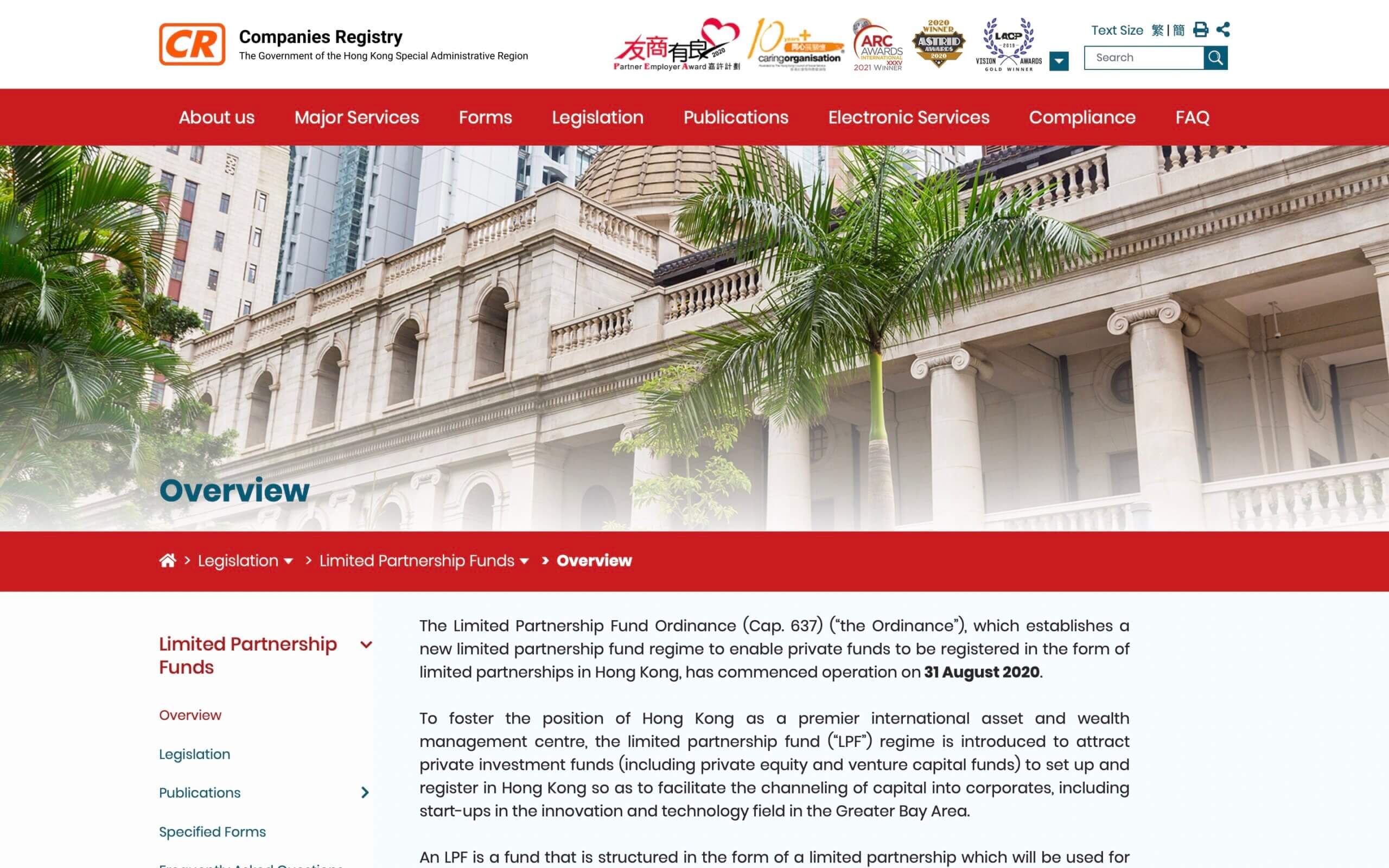Hello. I'm Mike, a lawyer living in Hong Kong.
It's a bit geeky, but we touched on it a bit in our last blog.Limited Partnership Fund (LPF) system I'm going to write about the LPF system. I wrote about it at the end of my last blog and got a great response, and this is my day job.
This system has not been widely publicised in Japan, but it is a big deal for those in the fund business in Japan and Asia.
Having gained control of Hong Kong through the enactment of the State Security Law, China has taken a series of steps to further strengthen Hong Kong's function as an international financial centre.
Hong Kong is coming at us hard.
But first.
How does the fund work in the first place?
First, we create a limited partnership (LP) inthe Cayman Islands.
In fact, any tax haven is acceptable, but since the Cayman Islands has a long track record and we are familiar with the Cayman Islands, when we say "fund" in Japan or Hong Kong, we first refer to the Cayman Islands.
Next, an asset management company (fund manager ) is set up in Hong Kong.
This can be anywhere, but the fund manager will choose a country where he/she can operate most efficiently in terms of laws, regulations, and taxation. This is where Hong Kong has been putting the most effort, and is fiercely competing with Singapore (not Tokyo) for supremacy in Asia.
This completes the general framework of the fund scheme for investment.
Now it is time to decide which country's assets to invest in. For example, in the case of a Japanese company (stocks), the final scheme is determined after considering the laws and regulations and taxation systems of the three countries: Cayman for the fund, Hong Kong for the fund manager, and Japanese stocks for the investment target.
However, no matter how hard we try to put together a great scheme, it will never be perfect.
Each country has its own taxation system and regulations, so a scheme that crosses several countries will inevitably have some uncertainties and unreasonable taxation. It's like buying an electrical appliance in Japan and using it in Hong Kong with a transformer and plug adapter.
FOR EXAMPLE, IN THE CASE OF A PRIVATE EQUITY FUND (PE FUND), THERE WAS AN URBAN LEGEND THAT THE FUND MANAGER WOULD LEAVE HONG KONG ONLY FOR THE SIGNING AND TAKE A FERRY TO MACAU BECAUSE THE FUND MANAGER MIGHT BE SUBJECT TO HONG KONG CORPORATE TAX IN HONG KONG AS THE INVESTMENT INCOME IS CONSIDERED AS BUSINESS INCOME. THERE WAS ALSO AN URBAN LEGEND.
And many, many more...
The main reason for this uncertainty and unreasonableness is that the fund is not located in Hong Kong.
This is where the LPF system came into play.
The National Security Law went into effect on June 30, 2020.
The LPF system was enacted on August 31, 2020.
I don't think it is a coincidence.
I can see the enthusiasm to create this system by waiting for the time when China has Hong Kong under its full control, and to leverage Hong Kong's fund business to drive the economic development of the GBA and mainland China. It is a quick move.
What's so great about setting up a fund in Hong Kong?
It's amazing.
If the fund is established in Hong Kong, the Hong Kong authorities can place it under supervision. As a supervised fund and fund manager, the application of business licences and tax treatment can be clearly defined across the fund. In practice, this has been the case.
Funds created under the LPF system are now exempt from taxation on their profits, subject to certain rules. You no longer have to worry about going to Macau.
The fact that carried interest is exempt from tax, which we mentioned in the previous section, is also based on the LPF system.
For all practical purposes, both the fund and the fund manager are located in Hong Kong, which saves a great deal of time, money and simplifies the establishment, operation and maintenance of the fund.
And finally, and this hasn't been talked about at all...
WHEN WE USE LPFS FOR JAPANESE FUNDS, THE 25/5% RULE DOESN'T APPLY.
We have talked before about the 25/5% rule in the fund business using Cayman funds, and how this change in the law disillusioned us. This rule is about international taxation and of course it is subject to tax treaties.
This means that no matter how many Japanese shares a Hong Kong fund sells, it will not be taxed in Japan, and since there is no taxation of gains on transfer in Hong Kong, it is ultimately tax-free.
I've suggested before that Okinawa should be a tax haven, and with this LPF in mind, I thought that was the only way to compete with it. I still don't think we can catch up.
IT IS TIME FOR JAPANESE PE FUNDS TO CONSIDER USING HONG KONG LPFS IN THE FUTURE.
See you next time.



